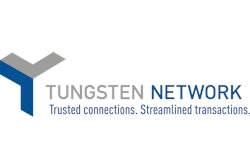London—August 18, 2014—The global process owner (GPO) is a new and important position within many organizations, but recent research highlights that only 26 percent of people in this role can fully enforce the process they are responsible for managing.
To shine a light on what it takes to be a successful purchase-to-pay (P2P) process owner, Tungsten Network and sharedserviceslink released the findings of an in-depth study. The study reveals that, to be effective, a GPO must:
- Balance ownership of the process with operations.
- Enforce process compliance.
- Secure senior management support.
- Take responsibility for technology.
- Build change management and relationship-building skills.
The study shows that the primary goals for people in this position are to standardize processes, improve performance and support the business objectives. To achieve these objectives, however, process owners need much greater influence over technology priorities, solution design and resources. Indeed, 53 percent of respondents have no authority over their information technology (IT) budget.
Enforcement is a key element for any process owner. The study shows that GPOs with the ability to mandate change dramatically improved their performance against key performance indicators (KPIs) when compared to respondents with little or no ability to influence change. When focusing on straight-through processing, P2P GPOs with full enforcement are more likely to improve performance against this KPI by 41 percentage points than their peers.
Respondents also identified the skills they believe a model process owner should have: Chief among them are change management, communications and influence skills.
“Our findings underline the impact that fully supported and empowered GPOs are having in an organization,” said Edmund Truell, Group CEO at Tungsten Corporation. “With process standardization and improvement at the top of the agenda, it is no surprise that we support more and more global process owners.”











